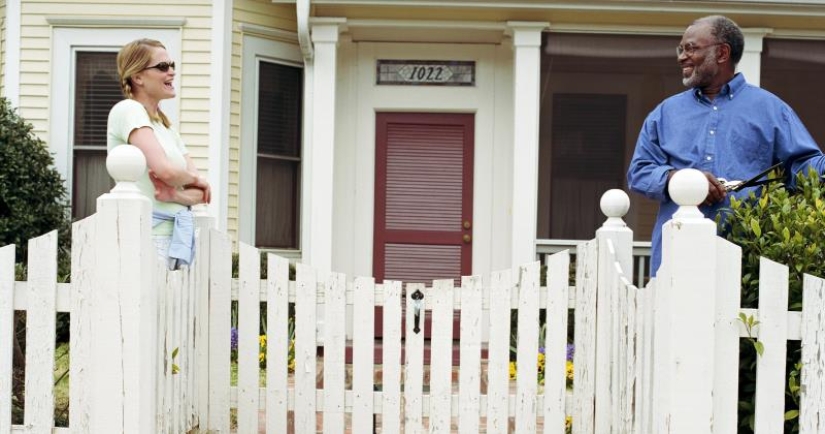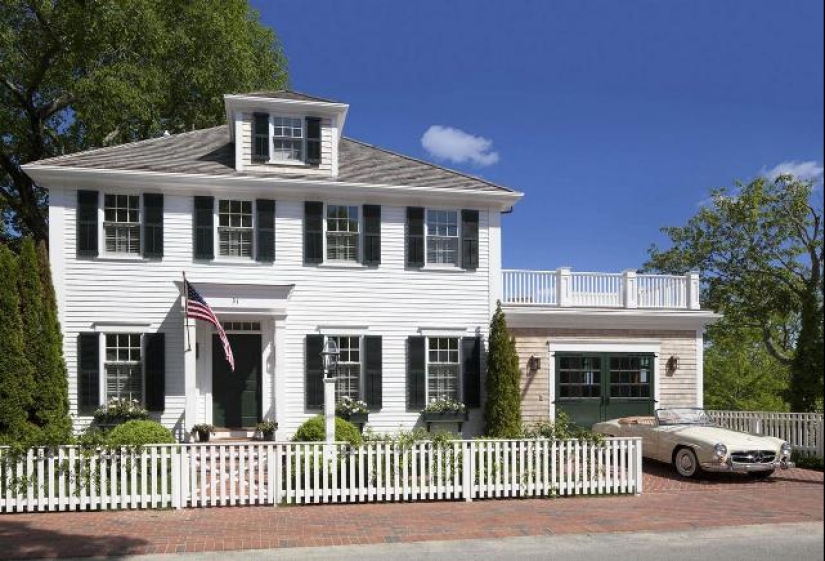Why high and strong fences are banned in the USA
Categories: Design and Architecture | North America
By Pictolic https://pictolic.com/article/why-high-and-strong-fences-are-banned-in-the-usa.htmlFor those who have never lived in the USA, it is difficult to understand the life and problems of ordinary Americans. For many of us, life in the States seems like a fairy tale. After all, it is not for nothing that this country is considered the freest in the world. But the reality turns out to be not so rosy. The life of Americans is squeezed into a strict framework of laws. They are not always free to do what they want, even in their private home.

In our country, owners of private houses can do any repairs and alterations themselves, without asking anyone for permission. In the USA, everything is much more complicated. If a homeowner wants to move a partition, make a new doorway, replace electrical wiring or even lay a new laminate, he will have to apply for permission from the appropriate service. At the same time, all changes need to be coordinated. And if some of the works of the service were not approved, they cannot be carried out.

All this is not only a waste of time, effort and nerves, but also certain expenses. You need to pay for approvals and expertise. And if the changes in the layout are recognized as global, then the owner of the property may also raise taxes. As sad as it sounds, but it will not even work to secretly put an outlet. If the neighbors find out about this, they will most likely report where they should. Then you will have to explain yourself to the authorities and pay a fine.
Changing the exterior of a private residential building and even carrying out landscaping on its own site should be carried out only with the permission of the administration. We are even talking about such a trifle as a flower bed in front of the house. And all because a favorable impression of the whole area depends on the appearance of each site.

You can't even just repaint the house, since its color is displayed in regulatory documents. Violators of the established order will have a hard time. They may be required to return the facade of the house or the design of the lawn in front of it to its original state, and in addition, in order to continue to be disobedient, they will be issued an impressive fine.
In most American states, the law prohibits the construction of high and blind fences. It is possible to install only low and non-capital ones that have more decorative than protective functions. This is not a whim of the authorities, but demands caused by necessity.

Frame construction is very popular in the USA and many houses consist of wood, drywall and plywood. Buildings like candles are burning. Therefore, it is necessary to ensure unhindered access of fire equipment to each residential building. Another reason for the ban on high fences is related to the protection of order. A plot with a low fence is clearly visible and conscious neighbors can call the police if something alerted them. The cops won't have to climb over the fence or break the gate.
Americans are mostly very law-abiding, but they can also be taken to extremes, as happened with the owner of a car service Marvin Himeyer from Texas.
Recent articles

It's high time to admit that this whole hipster idea has gone too far. The concept has become so popular that even restaurants have ...

There is a perception that people only use 10% of their brain potential. But the heroes of our review, apparently, found a way to ...

New Year's is a time to surprise and delight loved ones not only with gifts but also with a unique presentation of the holiday ...